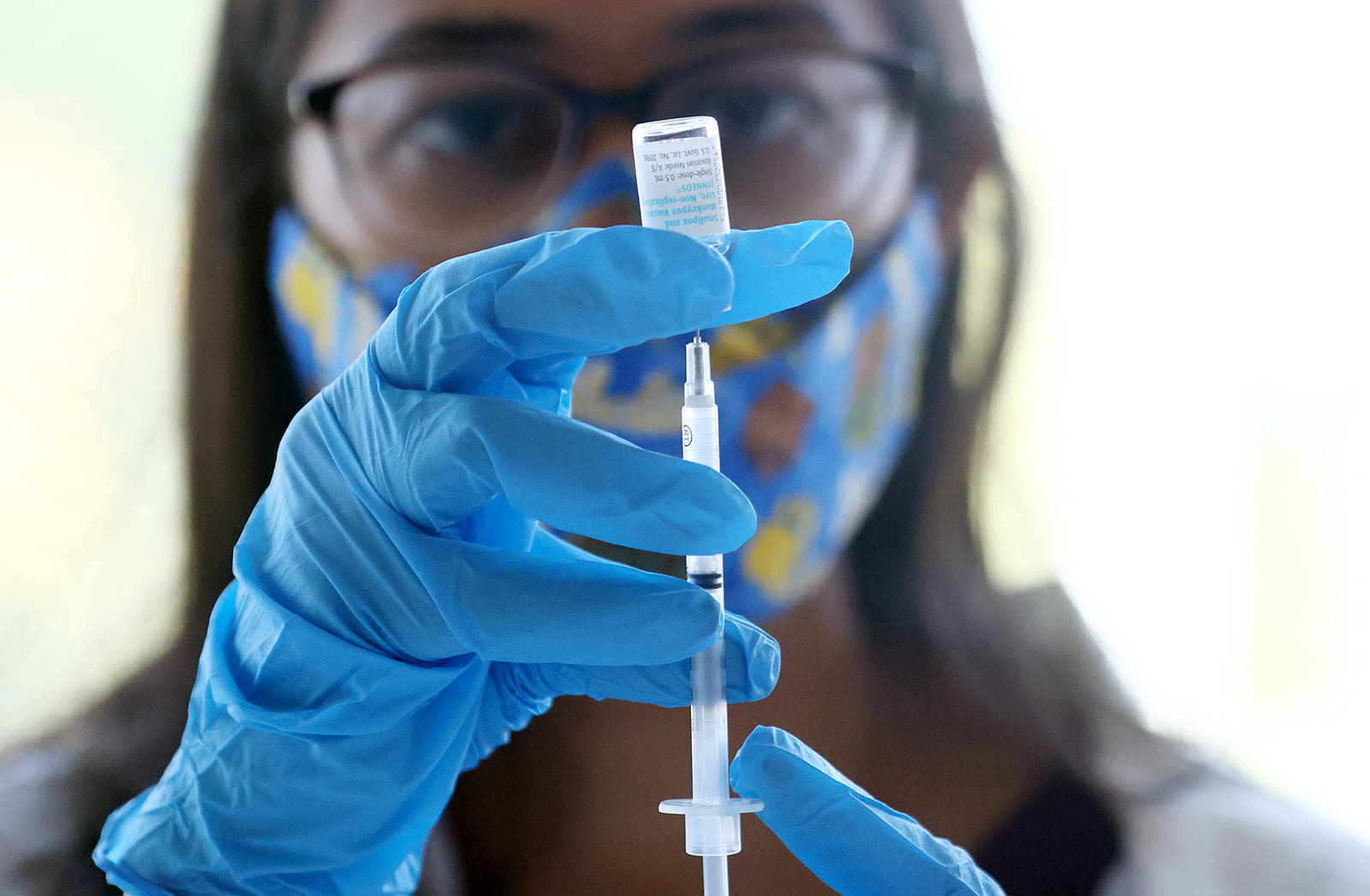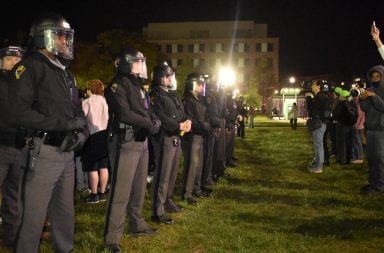
Pharmacist Uchita Parikh prepares a dose of the Jynneos monkeypox vaccine at a pop-up vaccination clinic at the West Hollywood Library on Aug. 3, 2022, in West Hollywood, California. (Mario Tama/Getty Images/TNS)
With monkeypox cases rising in Ohio, the population should remain cautious, but infection is less likely than COVID-19, director of the Ohio Department of Health Dr. Bruce Vanderhoff said in a press conference Aug. 11.
According to the Centers for Disease Control and Prevention, 119 monkeypox cases have been reported in Ohio, with the first case reported June 13. In contrast, the Ohio Department of Health has recorded over 190,000 COVID-19 cases since June 13.
“Unlike COVID-19, it doesn’t spread as easily between people,” Vanderhoff said. “Monkeypox is spread mostly through close intimate contact with someone who has monkeypox, most often through direct contact with the infectious rash sores, scabs or body fluids from a person with monkeypox or from respiratory secretions during prolonged face-to-face contact.”
According to the CDC, monkeypox is a rare and usually nonfatal infection that causes a painful or itchy rash on or near genitals and other areas of the body. Symptoms usually occur after three weeks of exposure to monkeypox, and the virus can last for two to four weeks.
According to the city of Columbus, there were 23 cases reported in the city as of Aug. 11. The first case of monkeypox was reported in Columbus June 27, according to a tweet from the Columbus Public Health.
Ohio State recently added monkeypox information to its Safe and Healthy Buckeyes website ahead of the fall semester. The website details signs of infection — rashes, skin lesions, fatigue and flu-like symptoms — as well as information on how the virus spreads through skin-to-skin touch and close face-to-face contact. The virus can also spread through indirect contact after touching fabric or surfaces an infected person touched.
Dr. Joseph Michael Gastaldo, a Columbus physician and specialist in infectious diseases, said monkeypox is not a pressing concern compared to COVID-19.
“With us still having nationally 500 deaths a day, the virus that’s still most concerning for the general public is the virus that causes COVID-19,” Gastaldo said.
The World Health Organization reports that most cases in the U.S. are found in men who have sex with men. Vaccines in Columbus are available to LGBT+ men, transgender people and gender nonconforming people, according to Columbus Public Health.
“However, we do not want to induce fear, homophobia, transphobia or anything else,” Gastaldo said.
Vanderhoff said individuals who are infected recover without medication. According to the CDC, only 8 percent of those who contracted monkeypox have been hospitalized, and no deaths have been reported.
Gastaldo said the monkeypox vaccine would not eliminate the risk of contracting the virus, but increases protection against severe illness.
Vanderhoff said the ODH continues to work to increase the supply of vaccines to communities with “the highest case counts and the highest risk for spread,” including Cleveland, Columbus and Cincinnati.
Columbus opened its first monkeypox vaccine clinic Aug. 4, according to a tweet from the CPH. However, there is currently a limited availability of vaccines, and registration is now closed. Eligible Franklin county residents are encouraged to continue to check the CPH website and its social media for updates.
Ohio State community members can seek testing and treatment for monkeypox at their primary caregiver or Wexner Medical Center immediate care sites, according to the Safe and Healthy Buckeyes website.
Vanderhoff said the ODH is planning to put up a monkeypox dashboard with data on the virus by the end of August.


